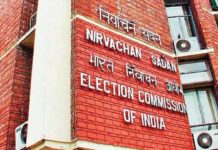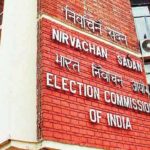 TOPIC – In a new light
TOPIC – In a new light
“SC push to decongest prisons amid pandemic is welcome. In deciding parole, age, comorbidities should be considerations”
In March last year, the Supreme Court issued a slew of directions to state governments and Union Territories, anticipating a health crisis in overcrowded prisons and remand homes in the wake of COVID-19. It directed governments to set up high-powered committees to determine “which class of prisoners can be released on parole or an interim bail for such period as may be thought appropriate”. The Court left it to the committee to determine “the category of prisoners who should be released as aforesaid, depending upon the nature of offence, the number of years to which he or she has been sentenced or the severity of the offence with which he/she is charged with and is facing trial or any other relevant factor, which the committee may consider appropriate”. On Friday last, justices UU Lalit and KM Joseph, in response to a plea for bail filed by Gautam Navlakha, an activist jailed in the Bhima Koregaon case, asked the legislature to consider the “possibilities that house arrest offers”. The Court’s proposition needs to be taken seriously. While discussing the need to decongest prisons amid a spreading pandemic, the Court has rightly invoked the prisoners’ right to health. Their age and comorbidities must also be important factors that must be taken into consideration. So far, that does not seem to be the case in most parole cases, particularly for political prisoners booked under stringent laws. Justice Joseph spoke about countries such as South Korea and the erstwhile Soviet Union employing house arrest to deal with “troublesome political dissenters”. This observation should nudge the high-powered committees deciding parole to look afresh at the category of prisoners deemed fit to be released. In cases such as Bhima Koregaon, undertrials, including 83-year-old Stan Swamy, who is suffering from Parkinson’s disease, have been denied bail. Tehreek-e-Hurriyat chairman, Ashraf Sehrai, died two weeks ago after a long incarceration in Udhampur without bail. Hany Babu, a Delhi University academician arrested in Bhima Koregaon, suffering from an eye infection, is now Covid positive as well. The Supreme Court had to intervene to ensure adequate medical care to ailing journalist Siddique Kappan. An undertrial in the Delhi riots case, student leader Natasha Narwal was refused bail to visit her ailing father — she was finally given bail to conduct his last rites. A judicious reading of chargesheets is necessary before deciding bail applications, particularly of prisoners with co-morbidities and age-related ailments. In this context, the Court’s suggestion to consider house arrest for thought crimes is particularly relevant.


















